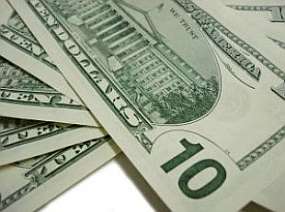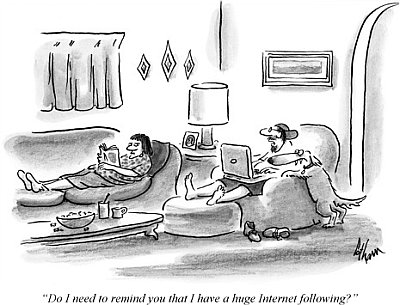 That I’m still under the weather makes today’s post all the more apt. Feeling lousy may be a state many of us will better understand in the days ahead.
That I’m still under the weather makes today’s post all the more apt. Feeling lousy may be a state many of us will better understand in the days ahead.
The fifth largest investment bank in the United States collapsed Monday. Please read that again.
Now read this: 60,000 homes in my state of Ohio are in the process of foreclosure as of last quarter. That’s the worst in the nation.
When I first read a nondescript, well-hidden article in The Wall Street Journal last May concerning problems in the sub-prime mortgage industry, I told my wife, “This is it. The ripples are going to be devastating.”
Long-time readers of Cerulean Sanctum know that this is one of the few Christian blogs out of thousands that talks about economic issues facing the Church in America. I’m no prophet, but it didn’t take a seer to read the handwriting on the last recession’s wall. My church’s number one prayer request was for meaningful work. Number one. Sadly, many of those who lost jobs in the last recession could not find jobs that paid as well as the ones they lost. This is a serious concern that many people, including economists, ignored.
The chance that we would suffer another economic meltdown worse than the one that hurt us for nearly five years seemed lost on all the stampeding bulls when the US economy supposedly turned the corner sometime in 2004-2005. Sadly, though, that corner turn didn’t trickle down to many people. Every economic survey known to man showed that real wages only improved during the last “rebound” for those in the top one or two percent of wage-earners. The rest of us could not keep pace with inflation. But those dour, yet real, numbers got lost in the giddiness over the fact that the ultra-rich got ultra-richer, and their continued ultra-richness drove up all the positive economic figures disproportionately.
Now the greed of many of those ultra-rich, particularly those who drove ludicrous speculation in investment sectors, is threatening the entire world economy.
Once again, the question must be asked: How has the Church prepared for any of this?
Perhaps this poll figure will show us:
[poll=35]
Answer? Not at all, it seems. Once again, we’ve been caught napping.
And this is patently sad, as I see it. One can’t read the Bible and not note that God blesses people who are prepared. Imagine a world where Noah failed to build the ark. Think on Joseph ignoring God’s counsel, leading to an Egypt ill-equipped to handle seven years of famine. Scratch those and there is no story of salvation, folks. The world grinds to a wet, watery end. Or it starves to death.
So which of our churches stored up for seven years of famine during the few years of “plenty” we supposedly just experienced? Just two percent by the poll responses. As far as I see it, every “unknown” response might as well be a “false,” because if it’s not obvious we’re preparing (and our preachers aren’t talking about it), then we haven’t been.
[poll=39]
Half of us said we could help a family in need up to a month’s worth of groceries. I figure that’s good for a one-time gift of $200-$300.
My concern here, though, is whether this will be enough when the need moves from being a lone family in your church and mine to dozens. Or in the case of some megachurches, hundreds.
[poll=38]
While it looks as if this poll shows a drop in what respondents thought would be the largess of their church versus what they would give themselves, it balances out because some believed their churches would handle more expensive needs. That’s a positive answer. Let’s all pray that it reflects reality.
[poll=37]
The last recession lasted three to five years, depending on which economists you read. The news for this poll question, though, deals with the increasing length of time it takes job searchers to find decent jobs lost during an economic downturn.
On average, the last recession saw the unemployed enduring ten months of nada before finding replacement work. Considering that most unemployment payments end after six months, it’s a four month shortfall on income. That’s all that half the respondents had set aside. God help us if things should be worse this recession.
About five years ago, I sat in a church amid 2,500 or so people and raised my hand when the pastor asked how many had at least six months income set aside. I looked around that massive auditorium filled with people and a grand total of six hands were raised. My wife and I counted for two of those hands.
This was not a throwaway poll by that pastor, either. He beseeched people to be honest. What was most scary was I would deem the majority of people sitting in that church that night to be middle to upper-middle class. These weren’t poor people already scraping by, but the ones who should know better.
How is it that we are not better savers? Why is the savings rate in this country in the negative numbers? I was playing a trivia game a couple weeks ago and a question asked, “What percentage of Americans spend more in a year than they earn in wages?” I guessed around 30 percent. The answer? Closer to 75.
Yeah, you read that right.
Folks, we Christians need to be better prepared than that and far more serious about money than we appear to be.
[poll=41]
If this answer were truly the case, then why are our churches unprepared to take care of people, both members and outsiders, if and when the economy tanks?
[poll=42]
A CNN poll today said that three out of four people believe we’re in a recession. I wonder what the poll above would show today versus three weeks ago if I re-ran it.
[poll=40]
In the church finances poll, most respondents said that staff salaries comprised the largest chunk of financial outlay for their churches. Fortunately, clergy positions are exempt from payroll taxes. Same for property taxes for churches.
Now imagine if those were removed on a church on thirty acres of land that had a dozen exempt-clergy positions. That’s a mighty big resulting ouch.
I would not be surprised if in my lifetime churches lost their tax exemption. Increasingly, city governments are fighting harder to keep churches out of any area deemed business-worthy. Why? Because the locality can’t draw taxes from that church, and the church keeps one more business from locating on prime, taxable turf. You can bet that sooner or later someone, somewhere, is going to run the numbers on all that uncollected tax money and somebody’s not going to be happy with failing to get a cut.
This issue becomes even scarier when we realize that the Fed position on church tax exemption considers it a privilege rather than a right. A series of court rulings in the 1970s formalized that “privilege, not right” position legally. And what is labeled a privilege is typically taken away when it seems most expedient to do so. Like in a deep, protracted recession. Just the kind that economic experts at the University of Michigan claim we now face.
Wouldn’t it be dispiritingly ironic if the American Church lost its tax exemption in order for the government to fund social services the Church should’ve been handling anyway?
[poll=43]
Pascal’s Wager is a famous apologetic that states it is far wiser to believe that God exists than to bet that He does not and be forced to pay the consequences of His existing. In other words, if God doesn’t exist, then it doesn’t matter who believes in Him or not, the end of all humans is the same. But if He does exist (and particularly if the Bible establishes His rules for living), then those who don’t believe in Him are in one world of hurt when they die. Better then to believe in Him.
Describing the Church’s position on the End of All Things poses the same problem, except for Christians. It’s nearly impossible to gather a room of noted theologians and get them to agree on issues like the Rapture, the millennial reign of Christ, and the meaning of the symbols and events of Revelation. Eschatology divides more Christians than just about any other issue.
In that case, would it not behoove Christians to prepare for the worst possible end times scenario rather than the least? If so, the worst would be that the Church goes through the entire Great Tribulation. If the Church gets raptured out of here at the first sign of trouble, then great! We avoid the Great Tribulation altogether. But what if that’s not the way it works? (And no one thought it worked that way until the late 19th century, so what does that tell us?)
Where then is our preparation? How will our churches handle persecution? What alternative economic systems are church leaders developing so Christians can exist outside the corrupted world economic system? Have we identified people in our churches with specialized skills? Are we doing anything at all to weather even a few months of the storm? Anything?
We simply are not ready and have no excuse for our lack of preparedness.
[poll=44]
Almost a third of poll respondents said they believed that Jesus would return in the next 5 to 25 years. That’s a pretty astounding number, though not unusual. I believe that most Christians throughout history have believed that the Lord’s Second Advent would come in their lifetimes.
Still, if one person out of three believes this, where is the evidence of our preparation for His return? One out of ten of you believe Christ will not only return soon, but that the Church will persist through the Great Tribulation. Where then is the evidence that one church in ten is prepping for that reality?
What we say we believe and how we live that belief MUST align or else we deceive ourselves.
I don’t want to sound like a broken record here, but it’s hard not to see today’s Church in America as the grasshopper in Aesop’s tale. We need to be more like the ant—or should I say that we needed to be more like the ant. Because if winter is indeed already upon us, it’s going to be a brutal and savage cold like we’ve never experienced before.
***

 I also think that most of us Evangelicals find money to be a stronghold issue in our lives. Living in America, the wealthiest nation ever, money is a big deal for us. Most of us have staked our lives to money. Thus, the stronghold.
I also think that most of us Evangelicals find money to be a stronghold issue in our lives. Living in America, the wealthiest nation ever, money is a big deal for us. Most of us have staked our lives to money. Thus, the stronghold.